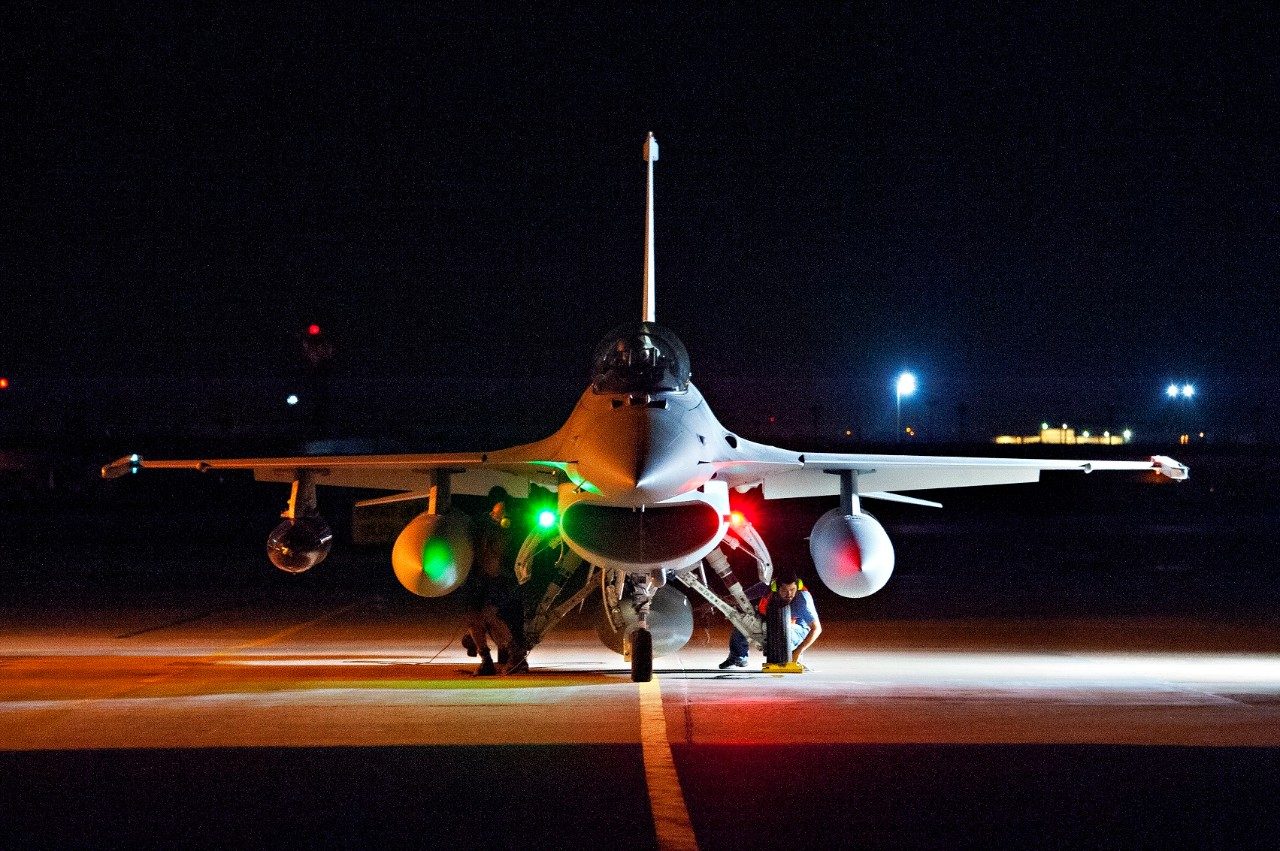The U.S. State Department has made a determination approving a possible Foreign Military Sale to the Government of Jordan of F-16 C/D Block 70 Aircraft and related equipment for an estimated cost of $4.21 billion. This proposed sale will support the foreign policy and national security objectives of the United States by helping to improve the security of a Major Non-NATO Ally that is an important force for political stability and economic progress in the Middle East. The proposed sale will improve Jordan’s capability to meet current and future threats by ensuring continued interoperability with U.S. and coalition forces. Jordan will have no difficulty absorbing this equipment into its armed forces. Implementation of this proposed sale will require the assignment of fewer than twenty (20) U.S. contractor representatives to Jordan for a duration of thirty-six (36) months to support secure storage requirements of critically controlled assets and provide on-site contractor logistics support. The principal contractor will be Lockheed Martin, Greenville, South Carolina. There are no known offset agreements proposed in connection with this potential sale.
On 15 February 2012, Lockheed Martin unveiled a new version of their F-16 at the 2012 Singapore Airshow. The F-16V will feature enhancements including an AN/APG-83 active electronically scanned array (AESA) radar, an upgraded mission computer and architecture, and improvements to the cockpit – all capabilities identified by the U.S. Air Force and several international customers for future improvements. The new variant is dubbed the “Viper”, which is intended to better operate with fifth-generation fighters, and should not be confused with Lockheed’s F-16IN Block 70/72 “Super Viper”, which was offered to India for the Medium Multi-Role Combat Aircraft competition and showcased at the 2009 Aero India Air Show. On 16 October 2015, the F-16V flew for the first time with an APG-83 Scalable Agile Beam Radar AESA, a new Center Pedestal Display, a modernized mission computer, Automatic Ground Collision Avoidance System, and many other upgrades. This can be fitted on new production F-16s or retrofitted on existing ones. The first of these were for Taiwan F-16A/B Block 20s. The upgrade of its 144 aircraft fleet started in January 2017 and is expected to complete by 2023.
The Government of Jordan has requested to buy twelve (12) F-16 C Block 70 aircraft; four (4) F-16 D Block 70 aircraft; twenty-one (21) F100-GE-129D engines or F100-PW229EEP engines (16 installed, 5 spares); twenty-one (21) Improved Programmable Display Generators (iPDG) (16 installed, 5 spares); twenty-one (21) AN/APG-83 Active Electronically Scanned Array (AESA) Scalable Agile Beam Radars (SABR) (16 installed, 5 spares); twenty-one (21) Modular Mission Computers (MMC) 7000AH (16 installed, 5 spares); twenty-seven (27) LN-260 (or equivalent) Embedded Global Positioning System (GPS) Inertial Navigation Systems (INS) (EGI) with Selective Availability Anti-Spoofing Module (SAASM) and Precise Positioning Service (PPS) (16 installed, 11 spares); six (6) AN/AAQ-33 Sniper Advanced Targeting Pods (ATP); thirty-one (31) Link 16 Low-Volume Terminals (for aircraft and ground stations) (26 installed, 5 spares); seventy-two (72) LAU-129 launchers (64 installed, 8 spares); twenty-one (21) M61A1 Vulcan cannons (16 installed, 5 spares); four hundred two (402) FMU-139 or FMU-152 Joint Programmable fuzes; one hundred (100) KMU-556 Joint Direct Attack Munition (JDAM) tail kits for 2,000LB GBU-31; one hundred two (102) KMU-572 JDAM tail kits for 500LB Laser JDAM GBU-54; one hundred (100) MAU-209 Computer Control Group (CCG) for Paveway II (PWII) GBU-10; one hundred two (102) MXU-651 Air Foil Group (AFG) for 2,000LB PWII GBU-10; one hundred (100) MAU-210 Enhanced Computer Control Group (ECCG) for 500LB Enhanced Paveway II (EP II) EGBU-49; one hundred three (103) MXU-650 Air Foil Group (AFG) for 500LB EP II EGBU-49; two hundred (200) MK-84 or BLU-117 (or equivalent) bomb bodies; two hundred four (204) MK-82 or BLU-111 (or equivalent) bomb bodies; six (6) MK-82 inert bombs; and two (2) MAU-169 Computer Control Group (CCG) trainers. Also included are AN/ARC-238 radios; AN/APX-126 or equivalent Advanced Identification Friend or Foes (AIFF) with Combined Interrogator Transponder (CIT); Joint Helmet Mounted Cueing System II (JHMCS II) or Scorpion Hybrid Optical-based Inertial Tracker (HObIT) helmet mounted displays; AN/ALQ-254 Viper Shield or equivalent Integrated Electronic Warfare (EW) systems; AN/ALE-47 Countermeasure Dispenser Systems (CMDS); KY-58M Cryptographic Devices; KIV-78 Cryptographic Devices; Simple Key Loaders (SKLs); Joint Mission Planning System (JMPS) or equivalent; PGU-28 High Explosive Incendiary (HEI) ammunition; PGU-27 training ammunition (non-HEI); ARD-446 impulse cartridges; ARD-863 impulse cartridges; BBU-36 impulse cartridges; BBU-35 impulse cartridges; MK-124 smoke flares; MJU-7/B flare cartridges L463 or MJU-53 or equivalent; Common Munitions Built-in-Test (BIT) Reprogramming Equipment (CMBRE); ADU-891 adapters for CMBRE; DSU-38 laser sensors for Laser JDAM GBU-54; Cartridge Actuated Device/Propellant Actuated Devices (CAD/PAD); BRU?57 bomb racks; MAU?12 bomb racks and TER?9A triple ejection racks.












